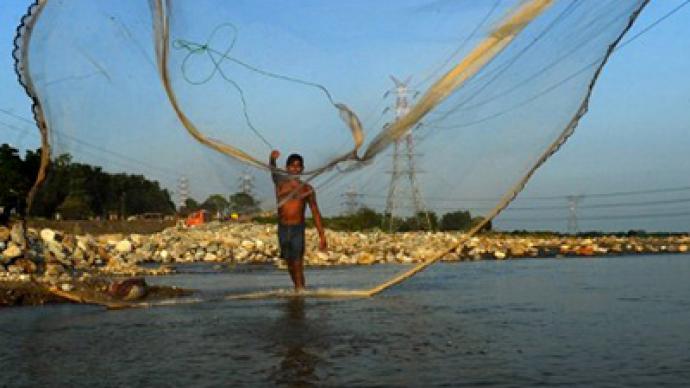Mobile fishing in India

Mobile phones are increasingly sophisticated these days, but there is one use you might not have considered – catching fish.
Indian trawler crews used to rely on luck for a good catch. But it is a different kind of net-work that is funding their fortunes – India's fishermen find mobiles are where the money is.Mohan Kumar revs up his engine for a day of fishing off the coast of Kerala – the southernmost state in India.“I studied in school until the 7th grade but then I had to leave school because we were not economically well off, so I had to help my dad with fishing,” says Mohan Kumar, a fisherman from Kerala.Kumar is one of thousands of fishermen in the state who wake up at one o’clock to earn a living. For decades, fishermen like Kumar, relied on luck and prayer in order to find a good catch, but all that has changed since the introduction of the mobile phone in the state more than ten years ago.“If the fish are not available where we go fishing, the fishermen in other parts of the sea call us and tell us where we might be able to find a good catch. Then we can go to that particular place,” explains another Kerala fisherman, Purushotaman.
In addition, because of the new ease of communication, Kumar is able to find out how much demand is at his local market and the prices the buyers are offering in order to determine where best to sell his fish. Today he is making double the amount of money he was making before he started using a mobile phone. He now owns his own boat and says he is able to send his three daughters to college.India has the fastest growing mobile phone market in the world and the most growth is happening in rural areas. What may be seen as a convenience in the West is being utilized by Indian fisherman, revolutionizing their business and turning them into entrepreneurs and businessmen in their communities. Most of these fishermen have been doing this work for generations and never imagined they would become so tech savvy. They had watched their fathers and grandfathers come home from sea several times with no fish at all, but today that never happens.“There is a lot of difference between the times when we used to go fishing with stick boats and now when we go fishing with engine boats. After the arrival of the phone, it has become easier for us,” says Kumar. Studies show that mobile phones are not just empowering the fishermen in the community. More competition means better prices for consumers, as on average they have fallen by four per cent. It is a new quality of life for the community, as the people never dreamed that they would escape poverty and provide new opportunities by advancing their tradition with technology.“Most fishermen are illiterate, but we want to give a proper education to our children and that is possible because of the earnings we get from the fishing business. There is no doubt that mobile phones have helped the business in a big way,” says Kumar.












